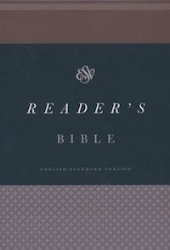Getting Off the Legalism-Laxness Seesaw (Part 1 of 4)
/A friend of mine, Pastor Larry Wilson, has been working on a summary of Part 1 of The Marrow of Modern Divinity, which was written in 1645 by Edward Fisher. It addresses the nature of God’s law and our sinful tendencies to either seek salvation through our own obedience or to do dismiss it all together. Over the next few days, I’m going to post Pastor Wilson’s summary in four parts.
INTRODUCTION
Sometimes, after a period of laxness, believers rediscover—as if it’s new—that God is holy. They start to feel that, if God is finally to deem us righteous in his sight, we’d better obey his law. This signals the start of a renewed pursuit of holiness. But then, bit by bit, assurance of salvation starts to flag. Joy wanes. People start to feel as if God is distant and angry. Christian living sinks into forcing ourselves to do our duty out of slavish fear. But then, believers start to rediscover—as if it’s new—that God is merciful and gracious. God saves sinners because of his free grace alone and by Christ’s work alone! And it’s sinners who he saves! We don’t have to obey God in order to get right with him. He saves us through faith alone! We’re not under law but under grace. Joy bursts out! But then, bit by bit, laxness starts to prevail once again.
We call the first tendency “legalism.” We call the second “antinomianism.” Alas, both tendencies are built into our sinful flesh. We believers keep trying to cure antinomianism with legalism, and legalism with antinomianism. This pattern keeps seesawing up and down, up and down, trapping us. That’s why it’s so refreshing to hear Sinclair Ferguson cut through the knot that binds us: “Antinomianism and legalism are not so much antithetical to each other as they are both antithetical to grace. This is why Scripture never prescribes one as the antidote for the other. Rather grace, God’s grace in Christ in our union with Christ, is the antidote to both” (The Whole Christ [Wheaton: Crossway, 2016], p. 156).
God says, “The law is good, if one uses it lawfully … in accordance with the glorious gospel” (1 Tim. 1:8‑11). But how do we do that? An old book, The Marrow of Modern Divinity (1645), shows how we need to make three vital distinctions in order to rightly use God’s law. Thomas Boston borrowed terms from the Apostle Paul to sum it up like this:
“All [people] by nature are under ‘the law of works’ [see Rom. 3:27–28]. But taking the benefit of ‘the law of faith’ [see Rom. 3:27–28] by believing in the Lord Jesus Christ, they are set free from the law of works and brought under ‘the law of Christ’ [see 1 Cor. 9:21].”
To rightly use God’s law in accordance with the gospel—and thus get off the legalism-laxness seesaw—we need to get these three things straight. Therefore, our pastors need to explicate them clearly. And our people need to embrace them heartily.




